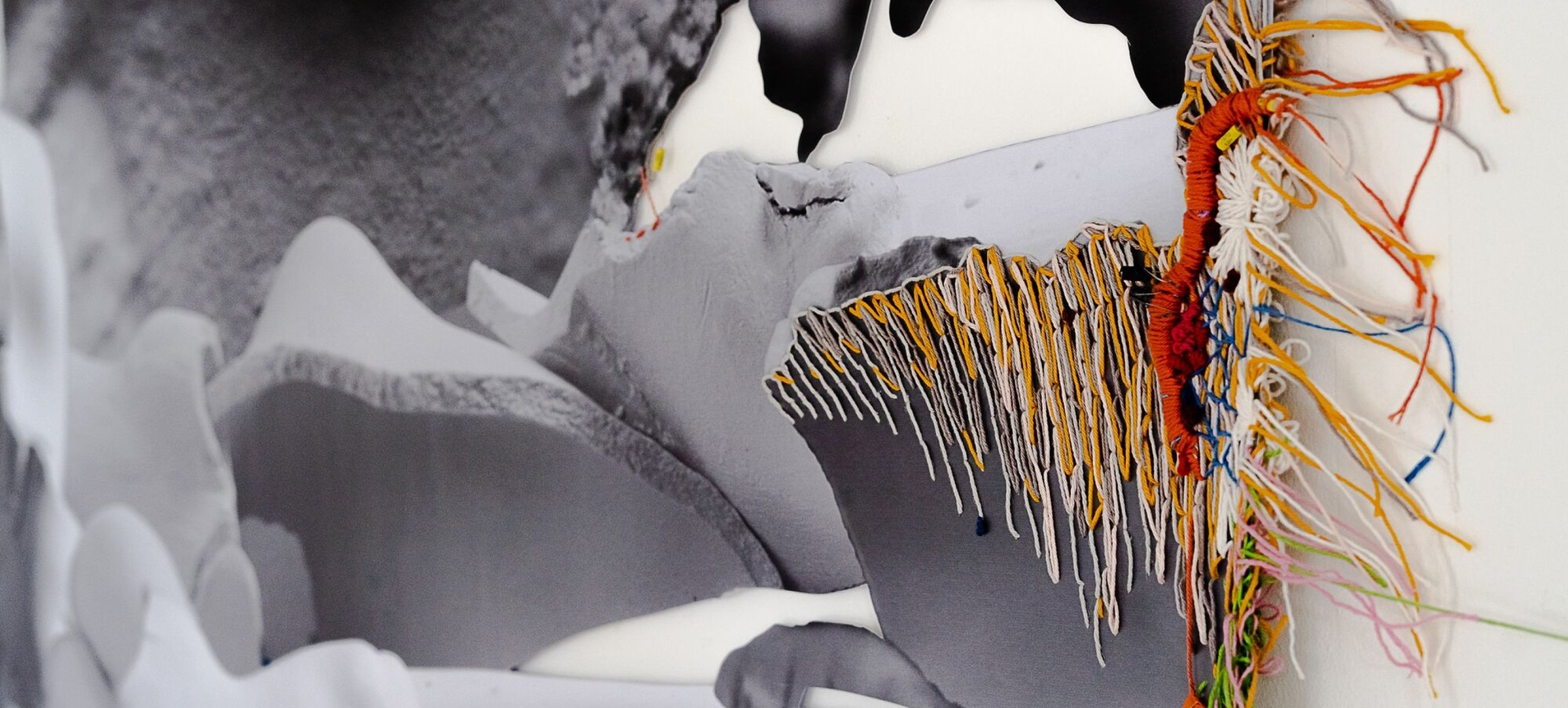Thinking with your hands
- Fine Art
- Design
- Education in Art
For Laeta Lazet (46), the way in which people view society, what is deviant and what is normal is an important theme in her finals work. She tackles this major societal issue with her hands, not her head. Laeta is in her final year of the part-time bachelor's course Fine Art and Design in Education in Arnhem. "I work from my hands and heart. Thinking with my hands is something I have learned from my lecturers on the course."

Choosing the part-time Visual Arts in Education course was the fulfilment of a wish Laeta had long cherished. She had wanted to go to art school when she was younger, but she decided to study ergotherapy in order to improve her job prospects. Yet she always felt the pull of the art world. "My grandma was an artist; I spent a lot of time in her studio, and those memories evoke warm feelings in me. When she died, some of her watercolours were displayed by her coffin. I felt she had left a legacy and I thought that was beautiful. I realised that if I wanted to do something in the arts, now was the time", she says.
"I have a job and a family, so full-time didn't seem like the right combination. I did the preparatory course for ArtEZ and I opted for part-time. I don't only want to make art, I am also interested in how society works. I want to make a difference to people who fall outside of society. This course lets me bring those two things together."
Confluence of art and education
Laeta feels that she is both artist and educator; a confluence of the two aspects. She values the freedom to think and make work conceptually, combined with internships within and outside the academy. Her artist and educator sides go together. She applies the insights she gains on her course in her work. Philosophy, citizenship and developments within society are themes that inform her work. Conversely, she can use the experiences from her work with people who live at the margins of society in her course. Accordingly, her theoretical research is called 'Normal or deviant: the mirror of your world.' Her visual work 'Barbiescape' is an amalgamation of the familiar doll with both escape and scape.
Normal or deviant: finals work
Laeta's finals work revolves around encouraging people to take new perspectives on each other. She explores how people relate to one another and why something is normal or deviant. Her research is based on opportunities to look at reality differently, taking as its starting point an encounter between the human and the non-human. "A stone, a phone or whichever everyday object you take – for me it's about looking beyond the human form. What if we also regard objects as 'alive'? That gives you a new perspective", she says.
"I detach the object from its world, from my world. By turning it into a different material, by distorting, fragmenting or taking distance from it, I seek out hidden spaces and special properties. I surrender to the perspectives of the non-human. For my finals, I took Barbie as my starting point. Barbie in ceramic; I broke that form down more and more and photographed it. Then I made a life-sized prints of it and draped wool over the photos. It all happened very intuitively."
Beyond cliché
Laeta's work is about going beyond clichéd perspectives on the human being and the world. When are you different? And when are you normal? Who decides? In her finals work, Laeta carries the viewer with her, makes them think and communicates her vision of society.
After graduating, Laeta wants to set up a place for making and meeting with two fellow students, in which art will be the medium for bringing people together. It will be a place where people can go who feel lost in society, who in some way don't 'fit'. Connecting people by means of art is Laeta's dream.
Her tip for prospective students is: "Above all, be open when you start the course. It helps to be organised, but experimentation and curiosity are also important. You go two the academy two days per week, but you also do quite a lot at home. That's pretty demanding. I really got a lot out of it: new contacts and a whole new world that you get to step into. I'd do the course again in a heartbeat. I'm going to miss it."
Follow Laeta
- Instagram: @laeta_lazet
- LinkedIn: Laeta Lazet
- Email: laeta@kopaal.nl


